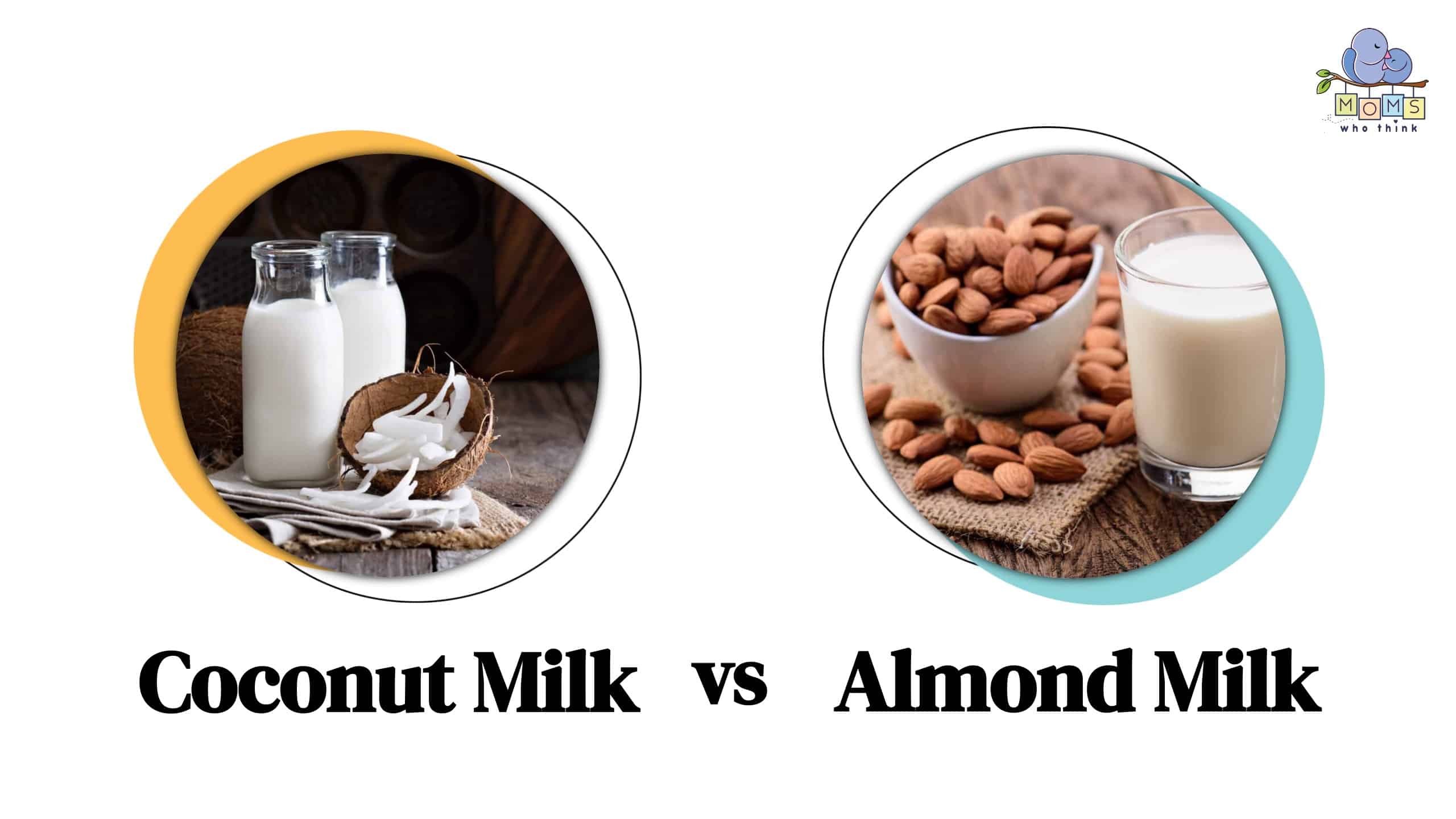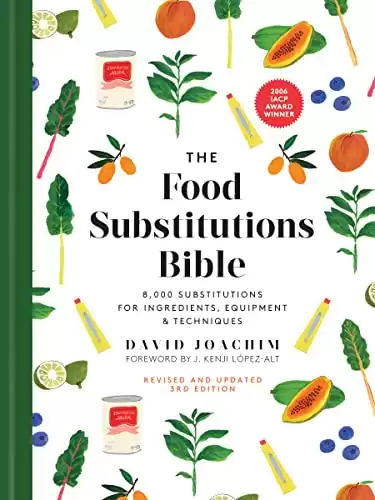Both coconut milk and almond milk are increasing in their popularity as dairy free and lactose free alternatives. But besides one coming from a coconut and the other almonds, they have other distinct differences., especially when it comes to health. For starters, coconut milk higher in fat and calories compared to almond milk. But what are other key differences between coconut milk vs. almond milk you need to know? Which is healthier? This article will break it down for you. So let’s dive in!
What is Coconut Milk?
Coconut milk is a rich and creamy liquid made from the white part of mature brown coconuts. To make it, you blend grated coconut flesh with water and strain it to get the liquid. This creamy milk gets its thick texture and strong flavor from its high oil content, which is mostly saturated fats. It's a great replacement for cow's milk, especially for people who can't have dairy, vegans and those who follow a gluten-free diet. Some types may have added sugar, but canned coconut milk is usually unsweetened, and you can find it easily in most major grocery store chains. You will also find coconut milk in international, ethnic and gourmet stores.
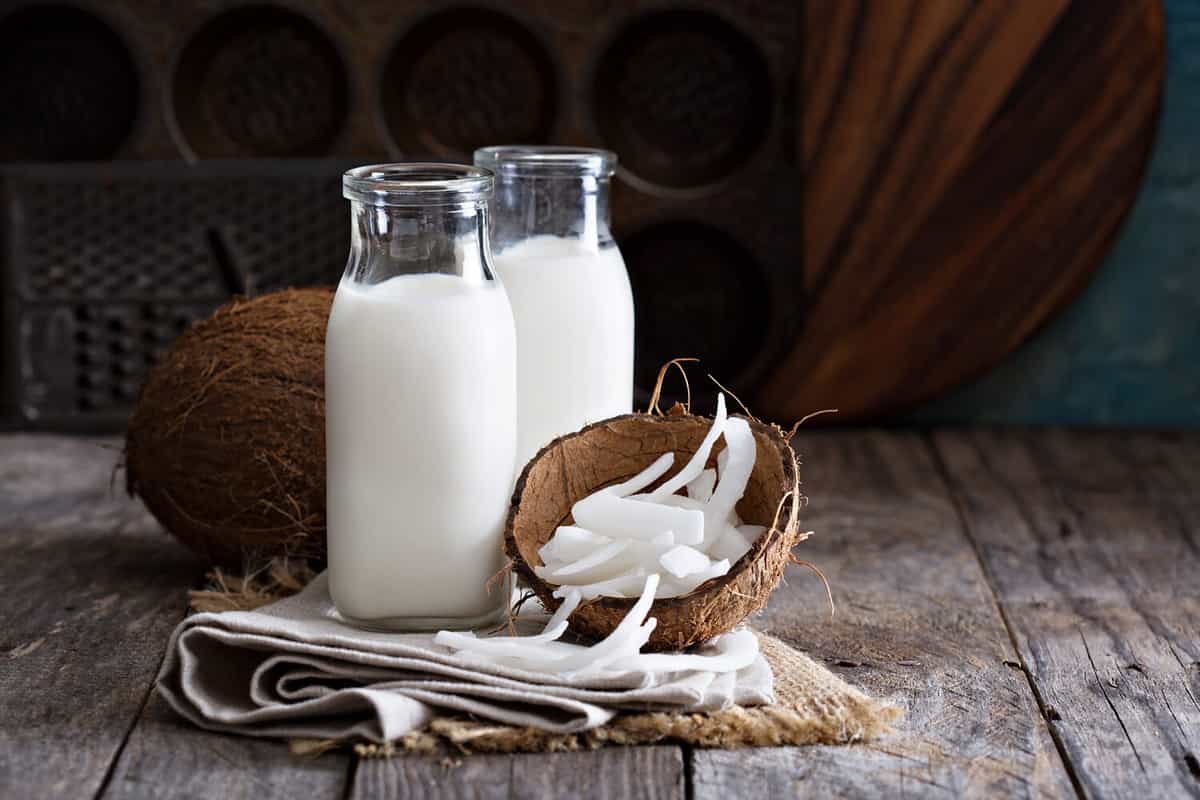
©Elena Veselova/Shutterstock.com
Important to Know
This article refers to coconut milk you can drink as a dairy-free alternative. It can be either shelf-stable or refrigerated. Drinking coconut milk is different from the canned version you would use in recipes such as curries or soups. Another article from Moms Who Think focuses on the canned coconut milk.
What is Almond Milk?
This is a dairy-free milk alternative made from almonds. It contains no lactose since it’s not an animal product. Also it doesn’t contain cholesterol, and it has very little unhealthy fat.
- The must-have convenient reference guide for every home cook!
- Includes more than 8,000 substitutions for ingredients, cookware, and techniques.
- Save time and money on by avoiding trips to grab that "missing" ingredient you don't really need.
Coconut Milk vs. Almond Milk: Key Differences
Besides its composition as stated above, there are other key differences. For instance:
Ingredients
Both coconut milk and almond start off with basic ingredients. Manufacturers may add other ingredients so need to be mindful of reading the labels for the sodium and sugar content.
Let’s start with coconut milk. It’s crafted by blending the grated flesh of the coconut with water and is known for its rich and creamy consistency. It contains significantly more fat and calories compared to almond milk.
On the other hand, almond milk is made by finely grinding almonds and mixing them with water. It tends to have a slightly grainy texture in comparison to the smoothness of coconut milk.
Taste and Texture
Known for its thick and creamy texture, coconut milk also has a strong coconut flavor. That can be desirable in some dishes such as curries, soups and desserts! But coconut milk may not be suitable for recipes where you want a more neutral taste.
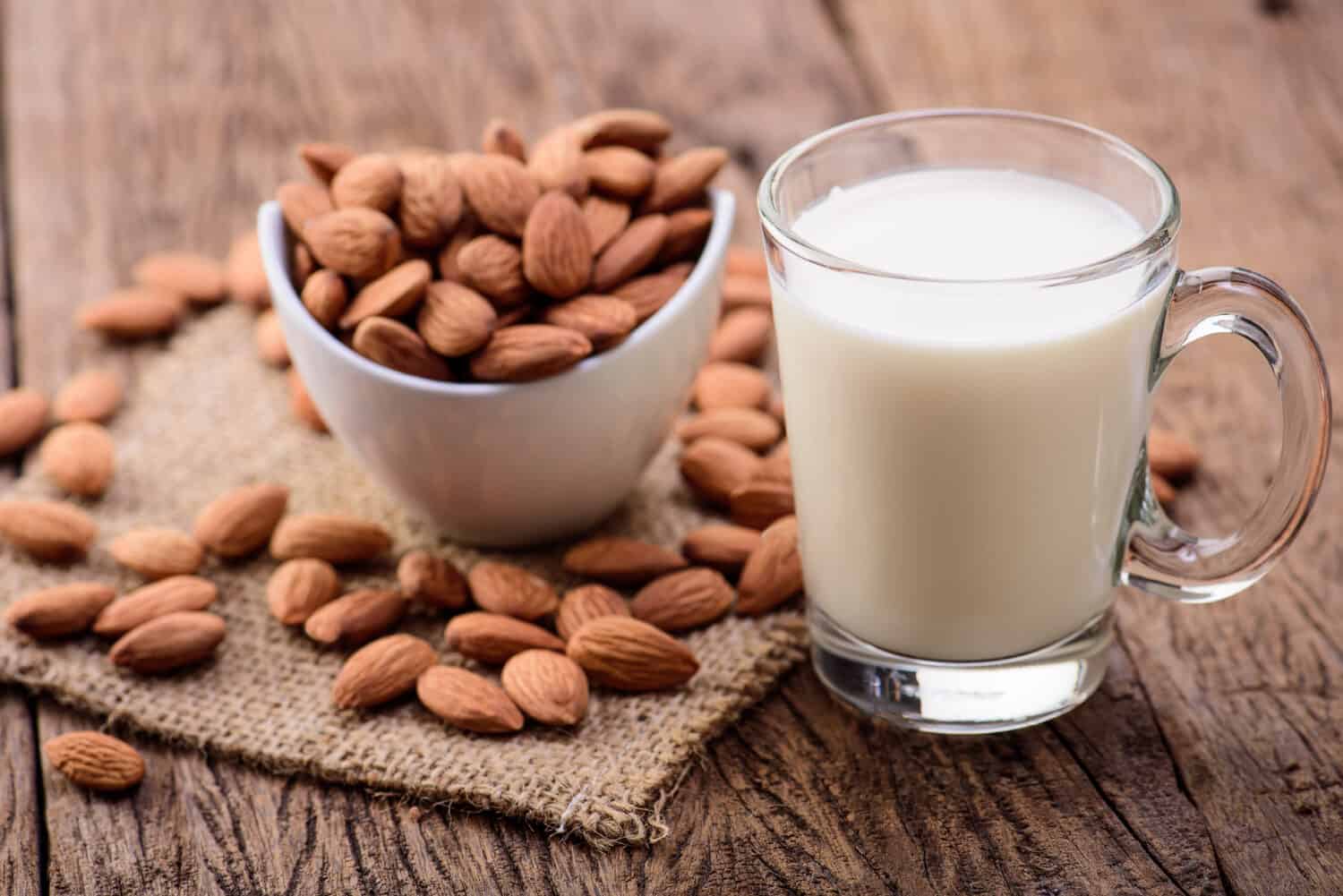
©LookerStudio/Shutterstock.com
On the other hand, almond milk has a thinner and more liquid consistency. It is commonly used as a milk replacement in beverages like coffee and smoothies, as well as in cereals (including oatmeals) and other breakfast dishes. Almond milk has a mild, slightly sweet, and nutty taste, which means it can be used in both sweet and savory recipes easily.
Both coconut and almond milk bring their own twist of tastiness to dishes calling for milk. They can often be used interchangeably too!
Calories
Coconut milk is relatively high in fat. And the amount of fat depends on whether it's full-fat, light, or reduced-fat as mentioned above. It's also a source of coconut oil. On the other hand, coconut water has very little fat to no fat (less than 1 gram).
If you want a milk alternative with fewer calories and less unhealthy fat than coconut milk, then almond milk is your better choice. Most cartons contain added nutrients like calcium and vitamin D. Both of these nutrients help ensure your bones stay strong and healthy.
Shelf Life
Unopened coconut milk has a shelf life of 2 to 5 years when stored in a cool, dry place. Once you open it, refrigerate any unused coconut milk immediately, and it should stay fresh for 7 to 10 days. However, it's worth noting that certain brands of coconut milk found in grocery stores may stay fresh for up to 14 days after opening.
Important
Never leave opened coconut milk out. Why? Because you increase the risk of contamination with bacteria and cause food-borne illnesses such as salmonella, listeria, and E. coli.
- The must-have convenient reference guide for every home cook!
- Includes more than 8,000 substitutions for ingredients, cookware, and techniques.
- Save time and money on by avoiding trips to grab that "missing" ingredient you don't really need.
And according to Spoon University, “Whether you have canned coconut milk or the stuff in a carton, it's always important to smell coconut milk before using it. If the coconut milk has gone bad, it will smell sour and may contain mold. It may also appear chunky and darker in color and will have started to curdle.”
After you've opened almond milk, it can be stored in the refrigerator for about seven days to ten days. So it has a shorter shelf like compared to coconut milk. After about 10 days, it starts to lose its consistency and will go bad. So if you pour your refrigerated almond milk into a glass and notices it looks lumpy or clumpy, you know it’s time to toss it in the trash!
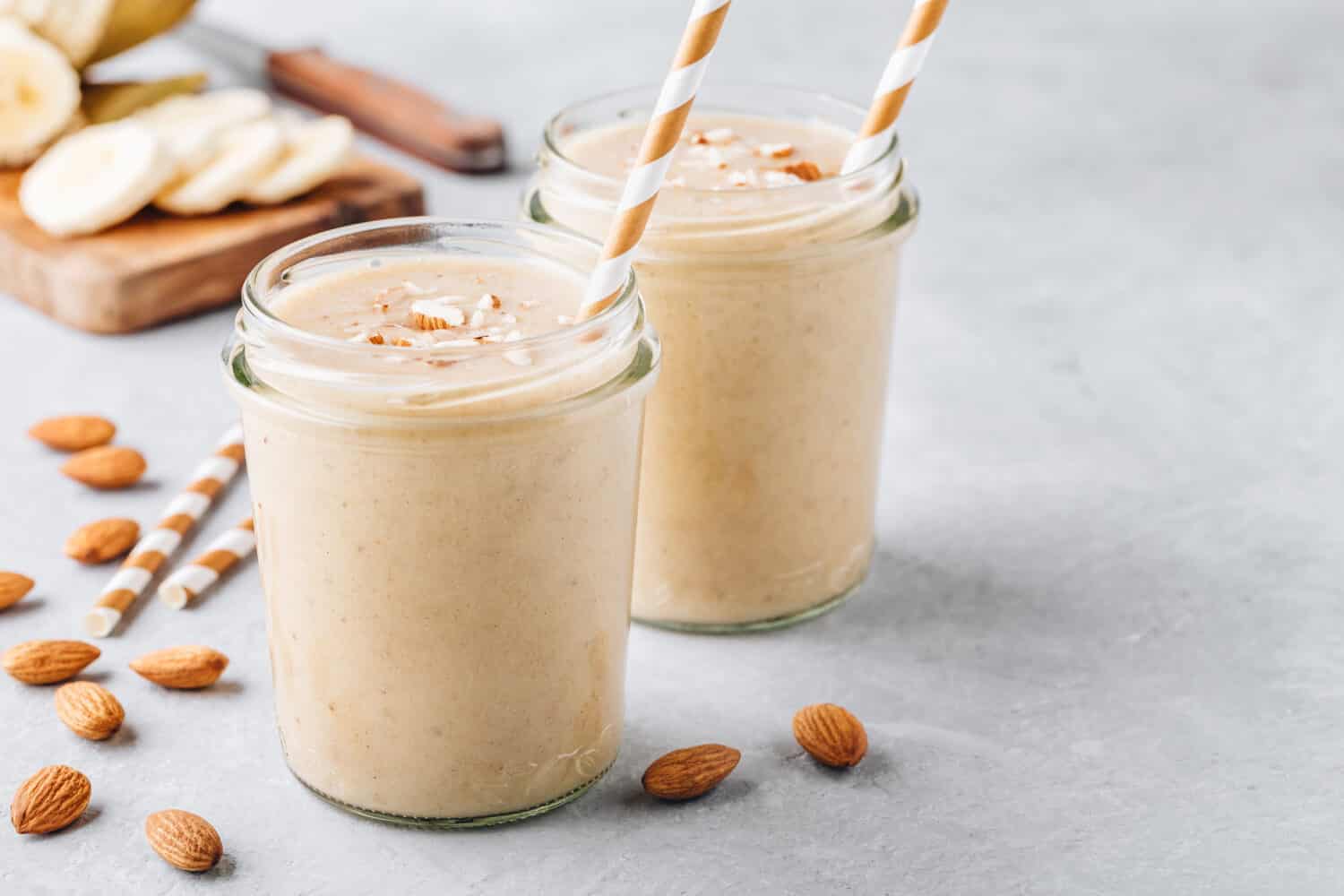
©nblx/Shutterstock.com
Shelf-stable almond milk, on the other hand, has a longer shelf life. If unopened and stored in a cool dry place, it can typically last one to two months.
Coconut Milk vs. Almond Milk: Why Should You Give Them A Try?
If you are looking for a plant-based alternative to drinking regular cow’s milk, both coconut and almond milk are great alternatives! For instance, if you can't have cow's milk due to lactose intolerance or allergies, you can use these plant-based alternatives in things like cereal, oatmeal, smoothies, coffee, and baking without any problems.
But you don’t have to be vegan or lactose intolerant to drink coconut or almond milk. In fact, if you prefer to eat fewer animal-based foods, you’re not alone. According to a report published by the International Food Information Council (IFIC), about one out of every four milk drinkers sometimes prefer a plant-based milk alternative.
Note
If you have nut allergies, it's important to know that both coconut milk and almond milk are considered nut milks, so it's better to go for options that do not contain nuts.
Coconut Milk vs. Almond Milk: Which is Healthier?
According to Medical News Today, coconut milk supports weight loss, heart health, and is rich in antioxidants, fighting off cell damage. Coconut milk is high in fat and low in carbs, making it a good fit for low-carb, high-fat diets like keto. It's a dairy-free alternative for those who can't have cow's milk. Coconut milk contains MCTs, which help boost energy. And even though it’s made up of mostly saturated fats, it may help lower cholesterol, improve blood pressure, and reduce the risk of heart issues. However, because it’s heavy on the calorie side, it's best to have smaller servings compared to coconut water.
On the flip side, almond milk is low in calories, doesn’t contain any cholesterol, and is good for your heart.
And if you're lactose intolerant, then you’re really going to love almond milk! Why? Because it's not hard on your stomach, making it easier to digest. It also has vitamin E, which protects your cells from damage. Plus, if you use unsweetened almond milk, then you won’t have to worry about it being loaded with sugar because it contains very little, if any. So make sure you read the labels.
Keep in mind, though, it isn't as high in protein as cow's milk, so make sure you get protein from other foods too.
Coconut Milk vs. Almond Milk: Nutritional Value
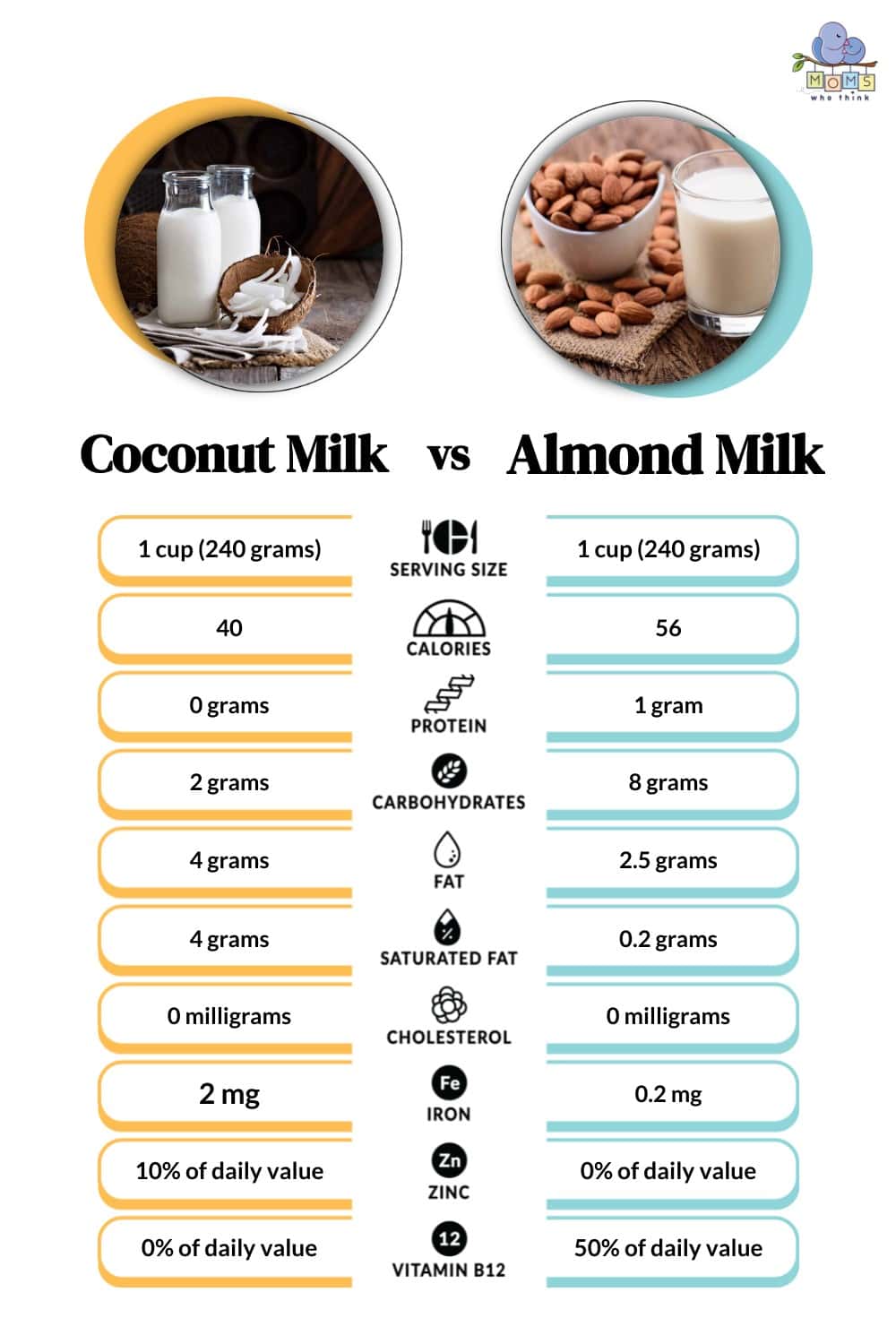
Coconut Milk vs. Almond Milk: Which is Better in Coffee or Tea?
That depends… on your palette! There are lots of popular brands of both coconut milk and almond milk that offer non-dairy creamers. These include So Delicious Coconut, Pacific Coconut, Pacific Almond, Silk Almond and Califia Farms Almondmik, to name a few. You can find many of these in national grocery stores across the America.
Final Thoughts
Overall you have two very good non-dairy alternatives to choose from between coconut and almond milk. Coconut milk, made from the white flesh of mature coconuts, offers a rich, tropical flavor and creaminess, ideal for dishes like curries and desserts. On the flip side almond milk, made by blending almonds and water, has a subtler nutty taste and is versatile, finding its way in a variety of foods from cereal to baking.
Both cater to various dietary preferences and offer distinct flavors and textures. Of course, if you have a nut allergy, then please avoid both coconut and almond milk. And feel free to consult with a healthcare professional when making changes to your diet. So, the next time you’re at the store, will you choose coconut or almond milk
- The must-have convenient reference guide for every home cook!
- Includes more than 8,000 substitutions for ingredients, cookware, and techniques.
- Save time and money on by avoiding trips to grab that "missing" ingredient you don't really need.
